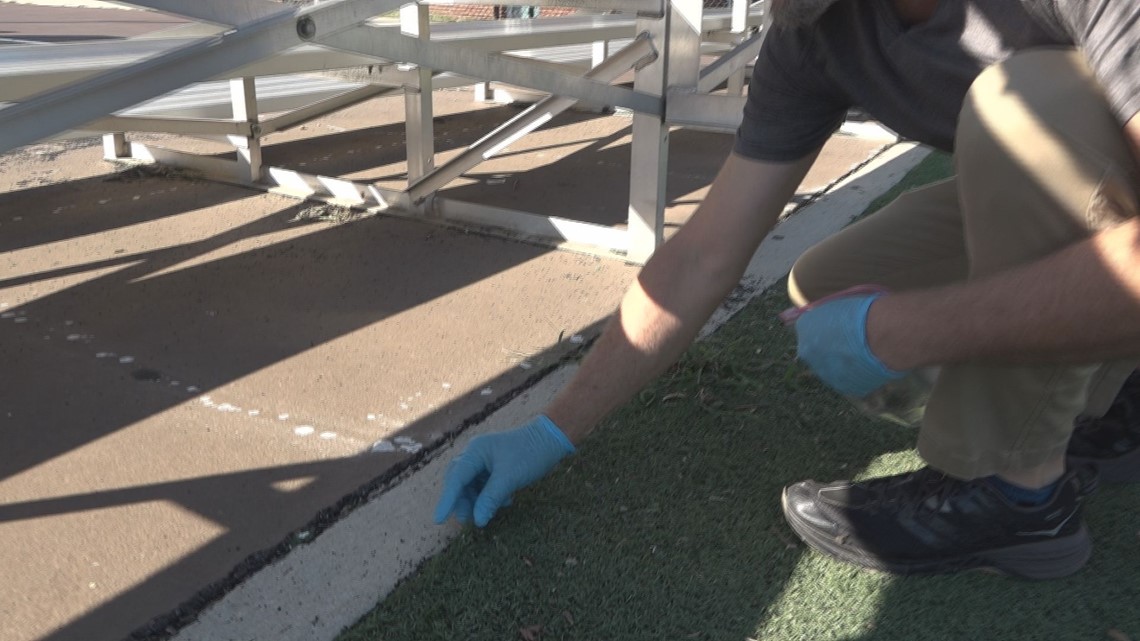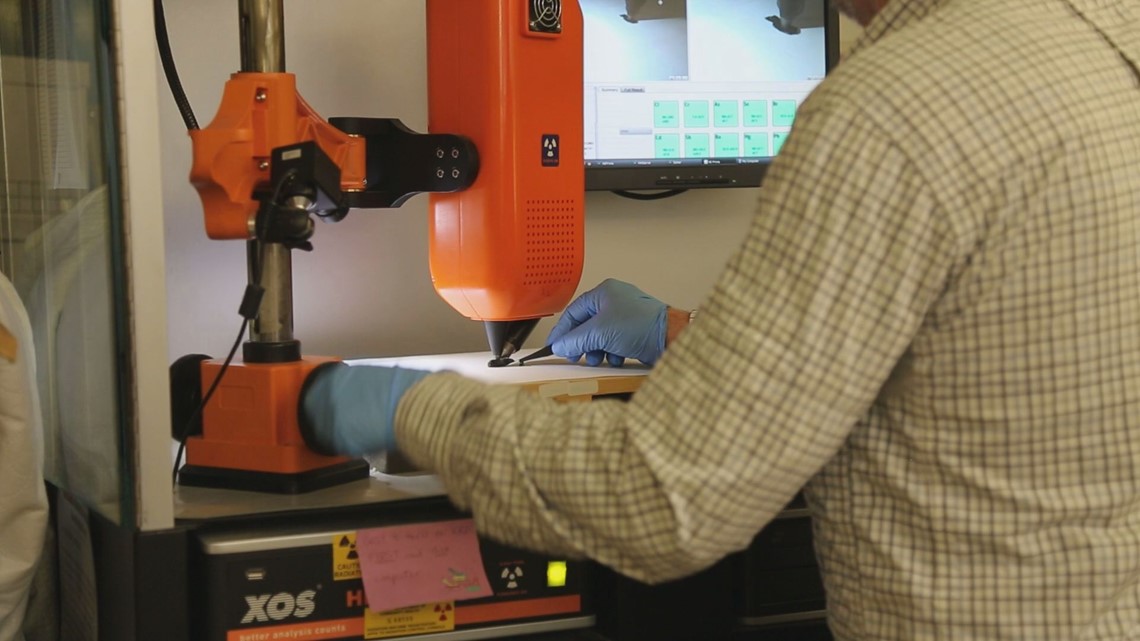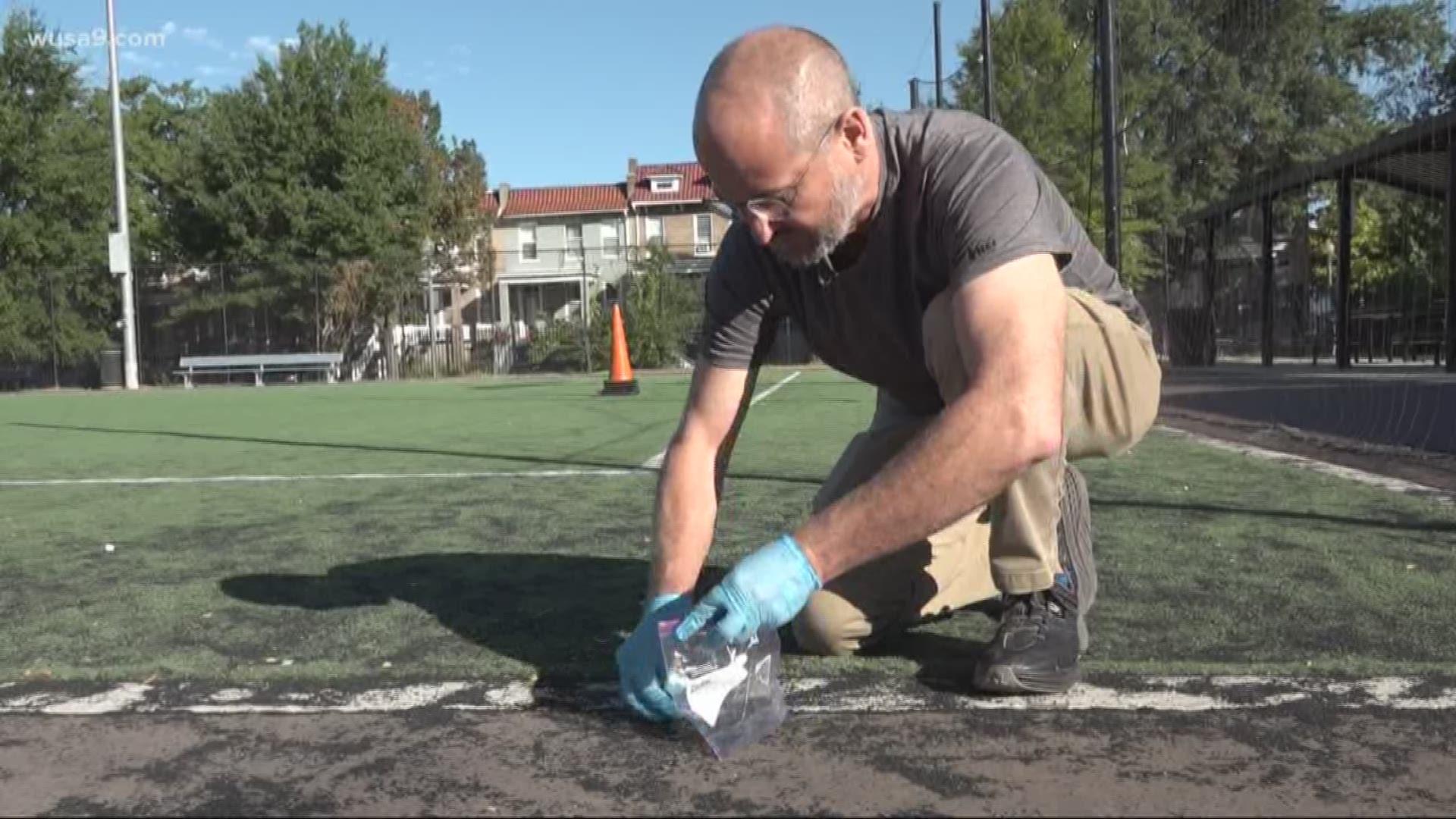WASHINGTON — Environmental scientist Jeff Gearhart collected blades of fake grass October from sports fields at D.C. public parks to see if they potentially contain harmful chemicals. His lab, the Ecology Center in Ann Arbor, Michigan, tested similar artificial blades near Boston, and found those sports fields did contain potentially harmful chemicals called PFAS. Test results on samples collected in October are expected within weeks.
"We don't know the exact environmental fate of the PFAS chemicals that we're seeing in the synthetic turf," Gearhart said. "But we know broadly that PFAS chemistry has been associated with a wide variety of health affects, including hormone disruption."
PFAS stands for polyfluoroalkyl substances, often used as stain guards and in other consumer products. The EPA's advisory says anything above 70 parts per trillion in drinking water can be hazardous to health, and can cause birth defects and hormonal problems.
The Ecology Center's tests in the Boston area found 190 to 300 parts per trillion in PFAS chemicals.


One big concern is what happens when chemicals found in artificial grass blades wash into our water supply?
"There are many efforts right now to restrict PFAS in drinking water, and municipalities around the country are spending millions and millions of dollars to treat drinking water to remove PFAS," Gearhart said.


"There's headline after headline that keeps coming out about how terribly unsafe and healthy these fields are for numerous reasons," Kristin Mink, a parent activist with "Safe & Healthy Playing Fields," said. "Now, there's another one. How many is it going to take before we finally ban these?"
The U.S. Army Corps of Engineers, responsible for supplying water to the Washington region, wrote in a statement last fall: "PFAS is a great concern to water providers. The American Water Works Association, the Association of Metropolitan Water Agencies, and others are urging that laws and regulations regarding PFAS be genuinely effective in protecting public health and place responsibility for cleanup of PFAS contamination on those responsible for its introduction into the environment."
The Corps added it's working with local water utilities to find the source of any PFAS entering the Potomac river.
The Synthetic Turf Council did not respond to WUSA9 questions. It told the Boston Globe that other studies have shown "no elevated health risks from artificial turf" but did not comment on the new PFAS testing.

